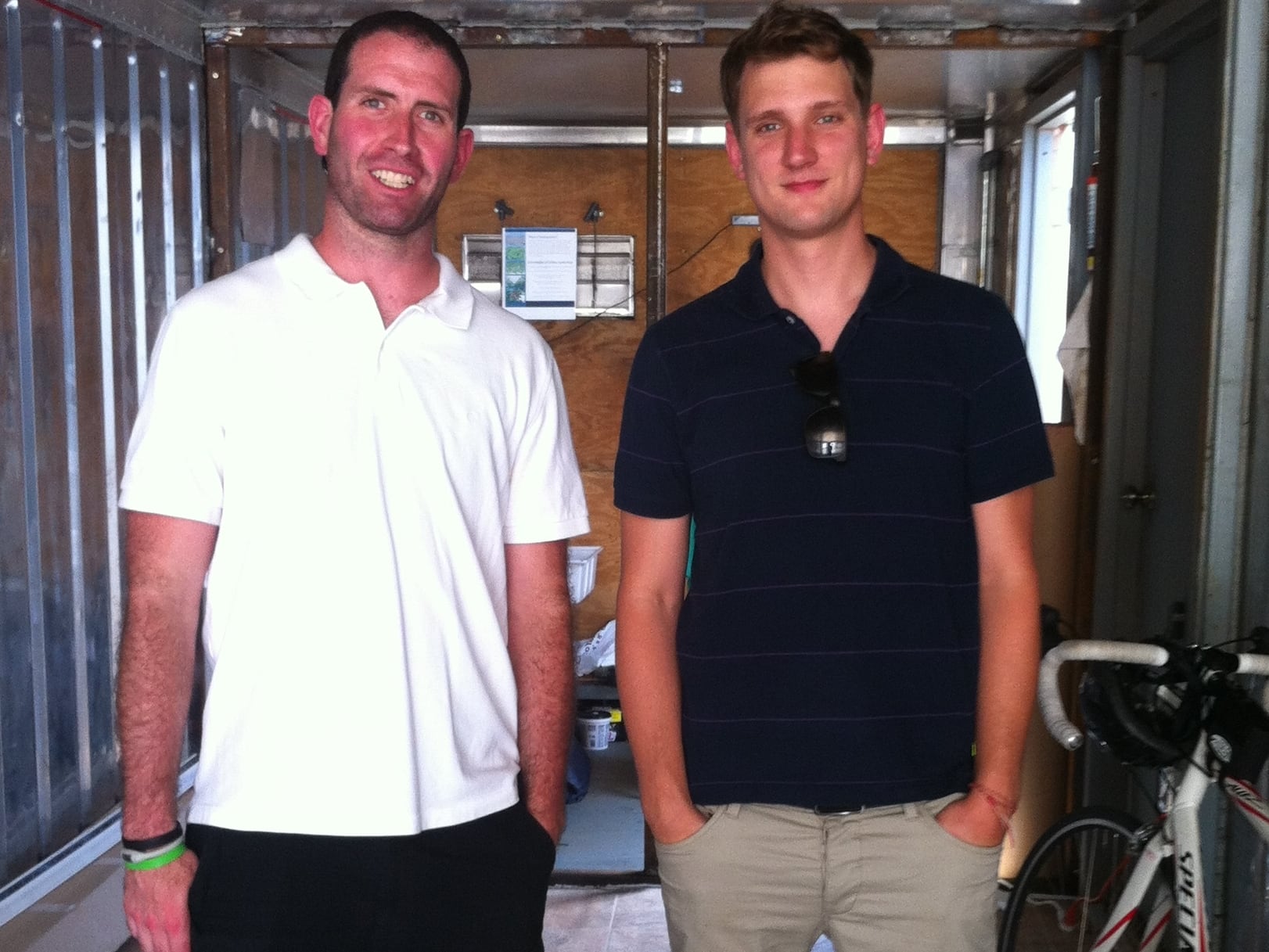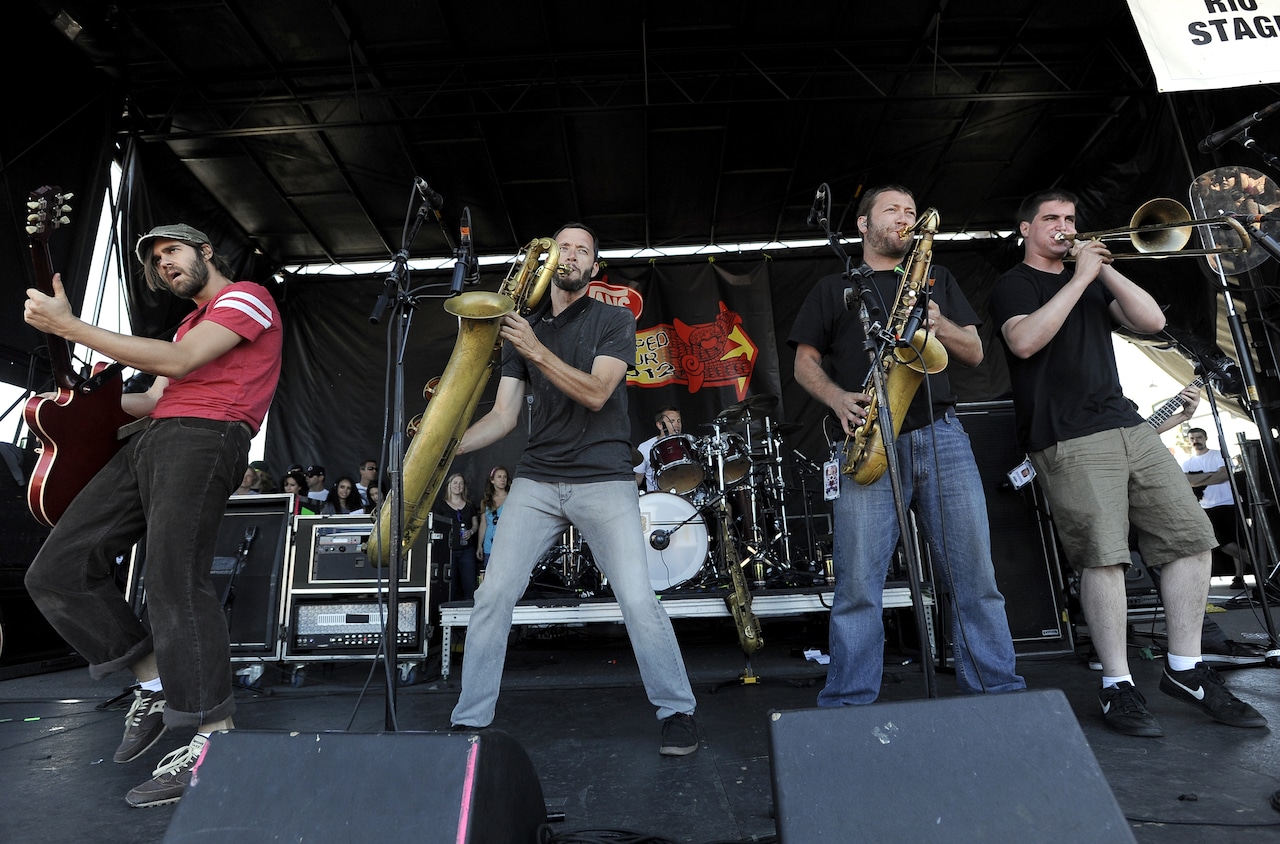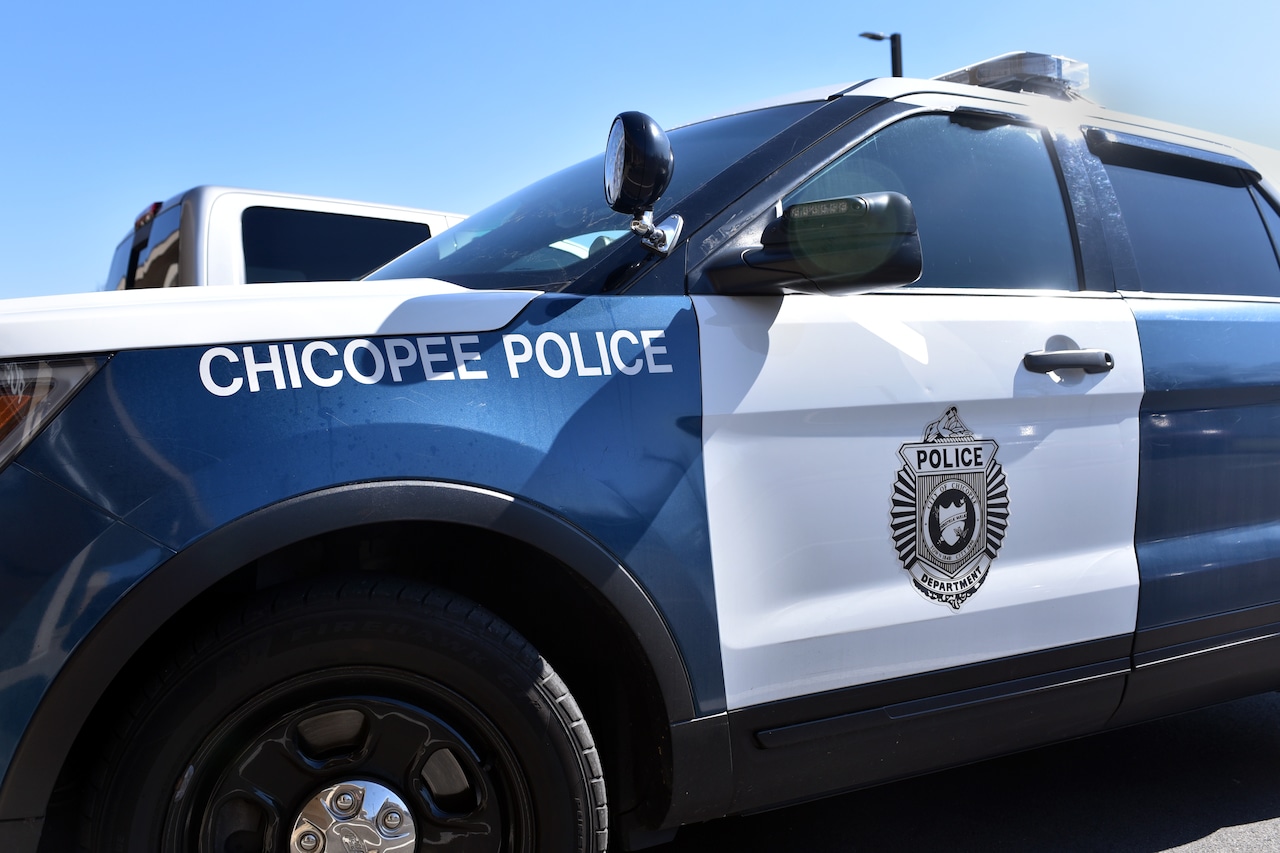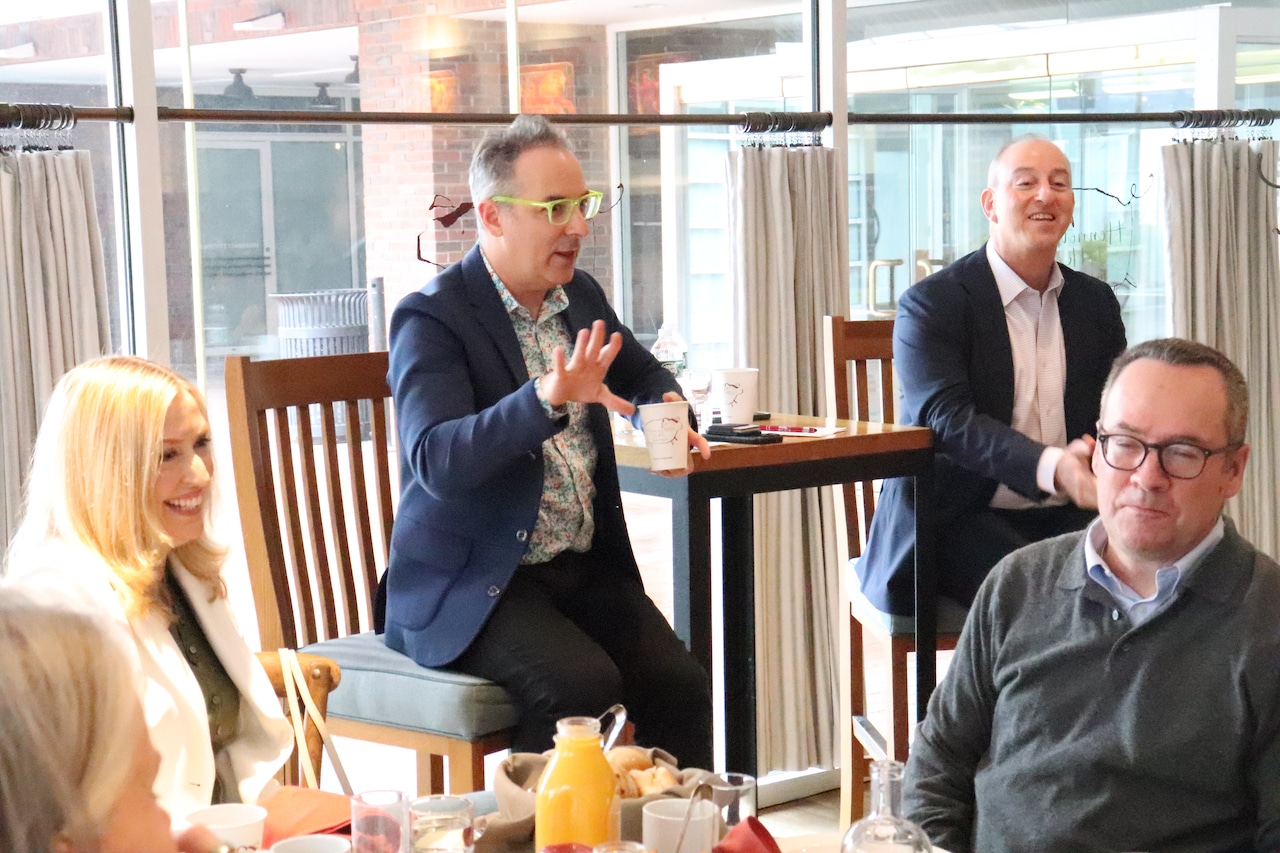You can meet a lot of Worcester-educated entrepreneurs, and visit a lot of Worcester-hatched biotech companies — in Boston.
Brad McNamara is among them. I first connected with McNamara when he was designing a hydroponic farming system inside a shipping container that sat in a parking lot on the edge of the Clark University campus. That startup, Freight Farms, migrated to Boston in 2013 to participate in two entrepreneurship programs and raise money — and it’s still headquartered there.
But next month, Worcester will host its first-ever Startup Week, with three days of panels, pitch competitions and company visits.
In June, the first phase of a new startup space called Auxilium will open on Main Street, in tandem with a new accelerator program that will make $250,000 investments in a group of five startups. The space and accelerator program are funded by Rucker Investments, the Beverly investment firm that owns the Worcester Railers hockey team, among other holdings. And since 2022, Wire Group, a collection of individual “angel” investors, has put money into eight startups, says Tim Loew, one of its organizers. (Most of those companies — but not all — are based in Worcester.)
“Worcester’s potential isn’t just theoretical anymore,” says Loew, who is also on a committee that will review startups to potentially receive funding from Auxilium. “It’s here.”
Loew moved from the Boston suburbs to the Worcester area two decades ago and helped build up the videogame design and e-sports programs at Becker College, which Clark University absorbed after Becker closed in 2021.
“Every year has been better than the year before,” Loew says.
Worcester has been building its entrepreneurial infrastructure for several decades now, with networking organizations like the Venture Forum, founded in 1991, and the biotech incubator Massachusetts Biomedical Initiatives, which dates back to 1984. Since 2016, WorcLab has offered access to desks, prototyping equipment, and “office hours” with experts. The Massachusetts Digital Games Institute, based at Worcester Polytechnic Institute, has offered support to videogame creators.
More recent additions include the shared “co-working” space Venture X, which opened last year, and the E for All entrepreneurship program, which serves both English- and Spanish-speaking founders. Since E for All began operating accelerator programs in the city in 2020, 135 projects have participated, says chief marketing officer Julie Smith, including nonprofits and artisanal food producers.
But while entrepreneurs have been able to find office space, education and mentorship in Worcester, money has been in limited supply. And, says Paul Silva, “the number one challenge of startups is access to capital.”
He started and ran an accelerator program in Northampton, which shut down in 2022. Often, he says, investors aren’t willing to “drive past Route 128 or Route 495 to look at a potential investment.” Silva remembers pitching his videogame startup at a Venture Forum meeting back in 2000 on the campus of WPI — and not getting any funding offers. (The company eventually raised money elsewhere, Silva says.)

Freight Farms Co-Founders Brad McNamara (left) and Jon Friedman (right), pose inside one of the startup’s first prototype container-based food production units in 2012. At the time, the company was based in Worcester but it later moved to Boston. (Scott Kirsner/MassLive)
That lack of capital “impacts the type, scope and potential impact of the type of companies that are created” in Worcester, says McNamara, the Freight Farms co-founder, who is now working on another food-related startup, Morrissey Market.
Even life sciences startups founded by University of Massachusetts Chan Medical School professors, or incubated at MBI, sometimes give in to the gravitational pull of the Boston area, and move east as they grow.
Wire Group and the Auxilium accelerator program could start to change that dynamic. Loew says Wire Group’s typical investment is about $45,000. Auxilium is offering a $250,000 investment to the first five companies it accepts this year, “with an option for further investment upon completing” the program, says Stephanie Ramey, vice president of special projects at Rucker Investments. The program will be “industry agnostic,” she says — open to startups working on any sort of business concept. Ramey says that she and Rucker Investments plan to support Auxilium over the long run: “We are approaching this with a 10-year initial vision,” she says.
“When you look at how many colleges we have in this market, this is a way to hopefully retain these students,” she says. “You don’t have to go to another market, or to the west coast.”
McNamara, at one point, was one of those students, biking between Clark and WPI to work with other students on the early designs of the Freight Farms growing system.
“The running joke, even when I was at Clark, was, ‘The Woo has been about to happen since the 1980s,’” he says.
Could 2025 be the tipping point?






